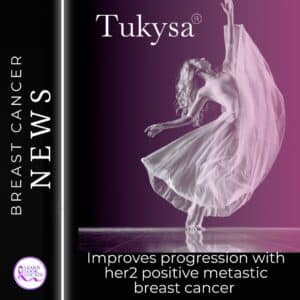
TUKYSA® and Ado-Trastuzumab Emtansine: A Milestone in HER2-Positive Breast Cancer Treatment
The innovative combination therapy of TUKYSA® (tucatinib) and ado-trastuzumab emtansine has marked a significant milestone in the realm of breast cancer treatment. This therapeutic pairing has demonstrated improvement in progression-free survival (PFS) for patients with HER2-positive metastatic breast cancer. This development is particularly crucial for patients who have previously undergone treatments with trastuzumab and a taxane but require additional advanced treatment options to combat this aggressive cancer type. The breakthrough highlighted in the Phase 3 HER2CLIMB-02 clinical trial represents a pivotal moment in offering hope and extended survival possibilities to this patient group.
Sara A. Hurvitz, M.D.’s Insight on HER2-Directed Therapies
In the world of oncology, combining targeted therapies to enhance treatment efficacy has become a game-changer. Sara A. Hurvitz, M.D., a distinguished Professor at the University of Washington and Senior Vice President at Fred Hutchinson Cancer Center, emphasizes this approach’s significance. Dr. Hurvitz, a leading expert in the field, stresses the importance of HER2-directed therapies, particularly for patients with locally advanced or metastatic HER2-positive breast cancer. The HER2CLIMB-02 trial, under her guidance, has shown remarkable results, especially for patients battling brain metastases – a group historically challenging to treat effectively. Dr. Hurvitz’s insight into this treatment modality underscores its potential to significantly improve outcomes and offer a new beacon of hope for many.
Clinical Advancements and Patient Experience
The results of the clinical trials involving TUKYSA® in combination with ado-trastuzumab emtansine have been promising. Patients receiving this treatment experienced a median PFS of 9.5 months, a substantial improvement over the 7.4 months observed in the placebo group. This enhancement in PFS is a testament to the effectiveness of the combination therapy. Furthermore, for patients afflicted with brain metastases – a particularly challenging aspect of HER2-positive breast cancer – the median PFS was 7.8 months compared to 5.7 months in the placebo arm, indicating a significant stride in treating this complex patient subset. While the study reported a higher incidence of discontinuations due to adverse events in the combination therapy group, it is crucial to note that these did not present new safety concerns, thereby reinforcing the treatment’s overall tolerability and effectiveness.
HER2-Positive Breast Cancer: Challenges and Progress
HER2-positive breast cancer, comprising approximately 15-20% of all breast cancer cases, often progresses to a more aggressive stage, with up to 50% of patients developing brain metastases over time. This statistic highlights the urgent need for more effective treatment strategies. The advancement represented by TUKYSA® is significant in this context, offering a new horizon in addressing these challenges. The progress in treatment modalities for this aggressive cancer subtype is a testament to the ongoing research and commitment to finding better solutions for patients battling this disease.
Learn Look Locate: Advocating Awareness and Support
Learn Look Locate (LLL) continues its unwavering commitment to raising awareness and supporting those impacted by breast cancer. Emphasizing the importance of education and patient empowerment, LLL echoes the advancements presented in trials like HER2CLIMB-02. This groundbreaking combination therapy of TUKYSA® and ado-trastuzumab emtansine not only symbolizes hope but also the relentless pursuit of better treatment options for those battling breast cancer.
